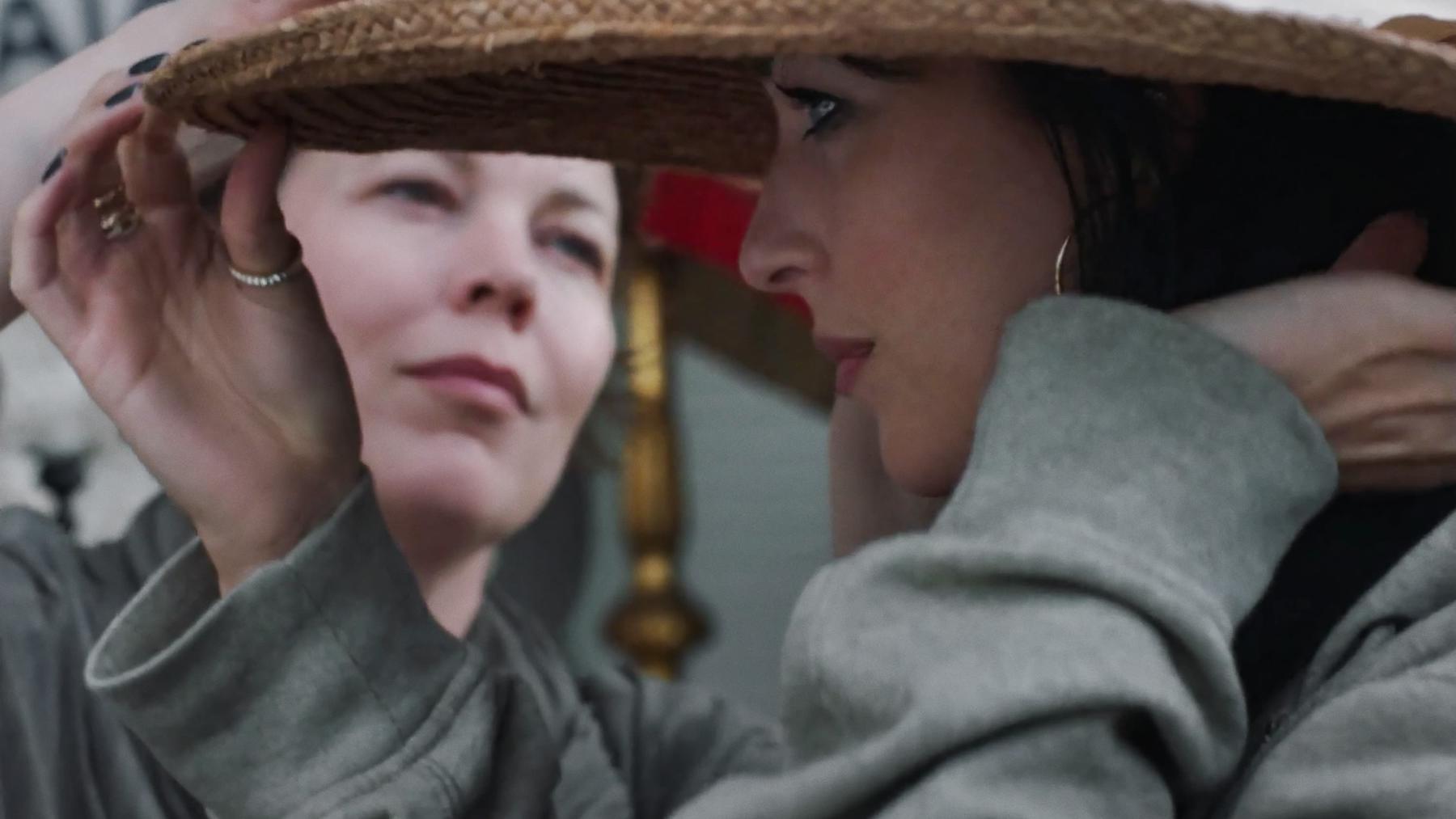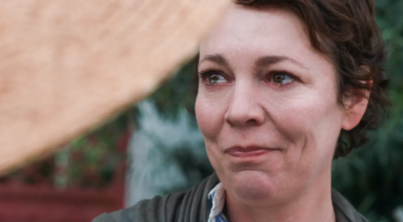People often say that only second-rate literary works can be adapted into excellent films, while top novels are too perfect to be well filmed. Maggie Gyllenhaal, who plays and directs, doesn't seem to believe in this evil. She chooses a very difficult text for her directorial debut - from the hottest writer Elena Ferrante in recent years. "The Missing Child", which was adapted into his first feature film "Daughter in the Dark". The film debuted in the main competition of the Venice International Film Festival and won the Best Screenplay Award in one fell swoop. Since then, it has been rated as the best debut film in 2021 by the New York Film Critics Association, and has won a gratifying reputation.

Maggie Gyllenhaal's strong network resources in the film industry allow her to complete the cast with a top lineup even though she is a first-time director. In the story, Leda, an Italian literature professor played by British actor Olivia Colman, travels alone to a Greek beach for a holiday. She is knowledgeable and reasonable, and at first glance she is a middle-class intellectual with profound background. On the beach, she met a family who came from the United States by chance. They had a deep connection with the local area. They seemed to be from a gang, and they looked very difficult to mess with. Among them, the beautiful young woman Nina brought her somewhat grumpy daughter, and had a sporadic intersection with Leda. In the process of observing the mother and daughter, Leda also began to think about her own life as a woman and a mother.

"Daughter in the Darkness" has a mysterious rhythm that may make audiences who are new to the film world feel overwhelmed. Why did Leda, who came to Greece to enjoy the sun, be alone? What is the holy grail of a noisy, unpleasant family on the beach? The film skips over everything, unconventionally "hides" the characters' premise, burying the clues in flashbacks and dialogues, and the audience is still piecing it together like a detective. Until the film progresses to a hiatus, we discover that Leda's identity as a woman and mother is at the heart of the story. So far, whether it is Laida's conflicts with Nina and her family, or her vague interactions with other residents of the island, they have to some extent aroused her to examine her own life - when she was young, she She was at a loss for her daughter who had just arrived in this world; when her academic career was on the rise, she even left her family to enjoy her short-lived solo life; Recognize, learn to give real care to flesh and blood.
The film arbitrarily uses flashbacks to connect Leda's past encounters with the current vacation scene. Nina's relationship with her daughter made her think of all the thorny problems she faced in the past. The restless camera is infinitely close to Jesse Buckley's young Leda, watching her overwhelmed by her daughter and work. Occasionally, when tenderness bursts out, she smiles sincerely, as if she has just won a battle. Gyllenhaal admits that he didn't want to force viewers to quickly realize that Jesse Buckley and Olivia Colman played the same character at different ages when he designed the shot. She hopes to establish a little connection between the two female figures through flashbacks and frequent jump cuts in reality, allowing them to interact delicately and look at each other through each other's eyes.
Indeed, Leda is an extremely complex female image that has appeared on the big screen in recent years. The director also tried to further de-moralize her life motives at various stages on the basis of the novel. If in Ferrante's novel, the urban landscape and historical background of Naples draw a clear clue for the activities of the protagonists, then "Daughter in the Darkness" successfully omits the geographical significance of the original, The focus is projected on Leda, the captivating female subject. The director handed over the control of the choice to the character without hesitation, and did not impose any presuppositions and judgments on her - whether it is when the child is embarrassed, or when she abandons the marriage and leaves the family. It is also through Leida's choices and circumstances that "Daughter in the Dark" removes the labels of "mother" and "wife" for women, and reshapes them into women to pay attention to those unresolved and unbearable things in their lives. , Forgive them for their indifference and embarrassment.